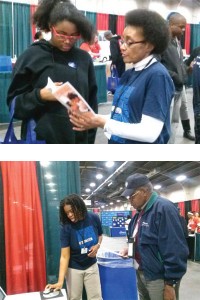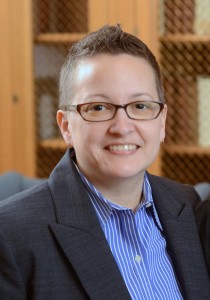 On November 21, 2013, the Library is sponsoring a Health Policy Forum presentation entitled Rethinking Healthcare-Associated Infections: Getting to Zero, which will be given by Pranavi Sreeramoju, M.D., M.P.H., Associate Professor of Medicine-Infectious Diseases at UT Southwestern and Chief of Infection Prevention at Parkland Health & Hospital System. The program will be held from 12 noon to 1 p.m. in McDermott Plaza Lecture Hall (Room D1.602), and Mark Swancutt, M.D., Ph.D., Interim Chief, Division of Infectious Diseases, Department of Internal Medicine, will host the event.
On November 21, 2013, the Library is sponsoring a Health Policy Forum presentation entitled Rethinking Healthcare-Associated Infections: Getting to Zero, which will be given by Pranavi Sreeramoju, M.D., M.P.H., Associate Professor of Medicine-Infectious Diseases at UT Southwestern and Chief of Infection Prevention at Parkland Health & Hospital System. The program will be held from 12 noon to 1 p.m. in McDermott Plaza Lecture Hall (Room D1.602), and Mark Swancutt, M.D., Ph.D., Interim Chief, Division of Infectious Diseases, Department of Internal Medicine, will host the event.
According to the Centers for Disease Control and Prevention (CDC), approximately one out of 20 hospitalized patients will acquire a healthcare-associated infection (HAI). Beyond the significant suffering of patients and their families, the overall direct medical costs to U.S. hospitals of HAIs may be as high as $45 billion annually. Yet researchers have estimated that up to 70% of HAIs could be prevented using currently available evidence-based practices. By CDC calculations, such prevention efforts could save up to $31 billion annually. What barriers keep hospitals from preventing HAIs? How can Parkland and other hospitals reduce HAIs to a minimum?
Dr. Sreeramoju led the effort to bring Parkland into full compliance with Medicare Conditions of Participation for infection control beginning in 2011, and she is uniquely qualified to address the challenges facing hospitals trying to bring HAIs to zero.
Pre-registration is not required, and attendance is open to all. Light lunch will be served but is limited so everyone is encouraged to come early!
For information, contact John Fullinwider by phone at 214-648-3801 or by email at john.fullinwider@utsouthwestern.edu.
Notes: CDC figures are from the CDC’s HAIS: The Burden page, as well as the following references:
- Scott RD. The direct medical costs of healthcare-associated infections in U.S. hospitals and the benefits of prevention [Internet]. Washington, D.C.: Centers for Disease Control and Prevention; 2009 Mar [cited 2013 Nov 1]. Available from: http://www.cdc.gov/hai/pdfs/hai/scott_costpaper.pdf
- Umscheid CA, Mitchell MD, Doshi JA, Agarwal R, Williams K, Brennan PJ. Estimating the proportion of healthcare-associated infections that are reasonably preventable and the related mortality and costs. Infect Control Hosp Epidemiol [Internet]. 2011 Feb [cited 2013 Nov 1];32(2):101-14. Available from: http://www.jstor.org/stable/info/10.1086/657912.
 The UT Southwestern Library staff made a valuable contribution to improving health care in our community through education during HealthFest at KwanzaaFest 2013, which was held at Fair Park. In partnership with the greater UT Southwestern outreach initiative, Claudia DeShay, Ph.D., Antoinette Turner, Jane Scott, and Charles Robinson connected with more than 200 members of the Dallas community – men, women, teens, and children – and informed them about free, safe, reliable health resources on the Internet. Participants at the two-day event shared their concerns and their hopes for healthier living.
The UT Southwestern Library staff made a valuable contribution to improving health care in our community through education during HealthFest at KwanzaaFest 2013, which was held at Fair Park. In partnership with the greater UT Southwestern outreach initiative, Claudia DeShay, Ph.D., Antoinette Turner, Jane Scott, and Charles Robinson connected with more than 200 members of the Dallas community – men, women, teens, and children – and informed them about free, safe, reliable health resources on the Internet. Participants at the two-day event shared their concerns and their hopes for healthier living.






